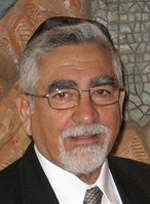By Dorian de Wind
The Moderate Voice

AUSTIN, Texas — While one form or another of “Holy Inquisition” ravaged Europe and the Iberian Peninsula for at least two centuries before and after the discovery of the New World, the year 1492 is often considered significant in the Spanish Inquisition as in that year – and in 1502 for Muslims – Catholic King Ferdinand II and Queen Isabella of Spain issued an ultimatum, El Decreto de la Alhambra (the Alhambra Decree) ordering Jews to convert to Catholicism, or else be expulsed from Castile.
The Royal couple was also suspicious of the “Conversos” — Jews who had converted to Christianity to survive persecution — and accused such Jews of of trying to turn Christians “to their own wicked belief and conviction.”
There have been many persecutions and expulsions of Jews in and from from other European countries, but the Spanish expulsion of Sephardic Jews – as they became known — was one of the largest and longest-lasting European diasporas. The number of Jews who left Spain is estimated at between 40,000 and 100,000.
They migrated to places as close as Portugal (where they soon would once again face persecution and expulsion), North Africa and the Middle East and, eventually, as far as the Caribbean and the New World, including the future United States, Central America and South America. There, they “held onto their traditions in some lands and hid them in others, passing them down to generations who were raised as Catholics.”
In the 20th century, Spain followed a policy of rapprochement and reconciliation towards the descendants of the expelled Sephardic Jews.
In 1924, the Spanish government announced the possibility of granting Spanish citizenship to the descendants of Sephardic Jews expelled from Spain.
In 1968, Spain officially revoked the Alhambra Decree and, in 1992, in a ceremony marking the 500th anniversary of the Decree, King Juan Carlos declared, “Sefarad [the Hebrew name for Spain] isn’t a nostalgic memory anymore; it is a place where it must not be said that Jews should simply ‘feel’ at home there, for indeed Hispano-Jews are at home in Spain…”
Finally, in 2015, Spain approved a law that would give those who can prove that they are descendants of those Sephardic Jews – prove that “special link” to Spain — not only the opportunity to apply for Spanish citizenship without the requirement to give up their current nationalities, but that would also allow them to return to their ancestral homeland.
Passage of the law created great expectations.
Only five months after passage, 4,300 Sephardi Jews acquired Spanish citizenship, according to the Los Angeles Times.
To-date, 34,000 descendants of Sephardic Jews have been accepted by Spain and, before this year, “only one person had been turned down,” according to a recent article in the New York Times titled “Spain Pledged Citizenship to Sephardic Jews. Now They Feel Betrayed.”
However, the article continues, “a wave of more than 3,000 rejections in recent months, [raises] questions about how serious the country is about its promise of reparations to correct one of the darkest chapters of its history, the Inquisition,” and notes that at least 17,000 people have received no response at all to their applications, many of them having “waited years and spent thousands of dollars on attorney fees and trips to Spain to file paperwork.”
While it is unclear to the New York Times why the wave of rejections has come now, it quotes Spain’s government as saying it is “simply trying to clear out a backlog of cases.” However, the Times notes, “…lawyers representing applicants say they feel officials have had a change of heart on the program, which formally stopped taking applications in 2019.”
The Los Angeles Times estimated in 2015 that up to 3.5 million Jews could trace their lineage to Spain.
Some of the author’s relatives presently living in the “New World” are direct descendants of these Sephardic Jews and may be interested in the Spanish offer.
While my (South American) Spanish is now a little bit “rusty,” I have absolutely no problem in translating “A promise made is a promise kept” and I hope the Castellano translation is the same: “Una promesa hecha es una promesa cumplida “ [A promise made is a promise kept.]
CODA:
Portugal has a similar “Law of Return,” offering descendants of expelled Sephardic Jews Portuguese citizenship.